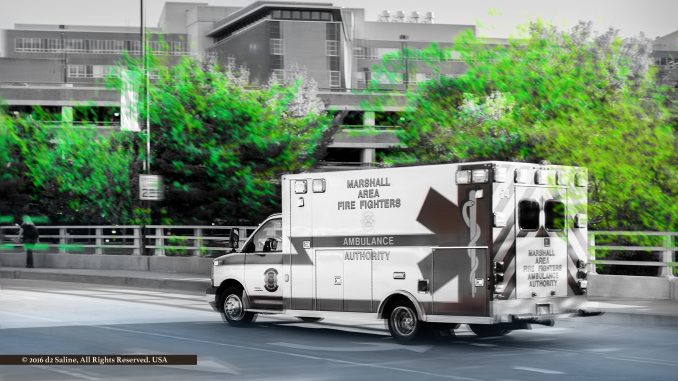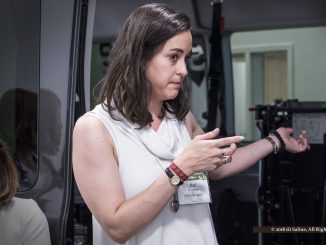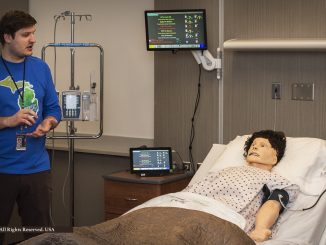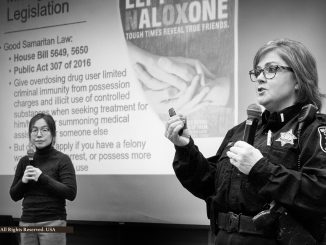
It is definitely not a seizure nor a stroke. But symptoms often look like those related to the dissociative presentations of a seizure. Or the functional weakness of a stroke. Or both. [1]
The difficulty in understanding this affliction is second only to the challenge in finding a clear definition for “functional neurological disorders” (FND) — “what some people call conversion disorder — (featuring) nervous system (neurological) symptoms that can’t be explained by neurological disease or other medical condition ….” [2]
The symptoms, however, are very real and significantly distressing.
Imagine a rather involved holiday gathering that took place over several hours, with a fair amount of hubbub to confront a sequenced agenda of meal preparation and yard activity. Without warning, the host falls back against a counter in her kitchen. Back and shoulders rigid, hands clench into fists. Pupils roll back out of sight behind eyelids suddenly committed to keeping them hidden.
Then she collapses to the floor. Rolls side to side, arms and legs flailing, each on its own course. Sometime sooner or later, all movement stops, without sign of return to consciousness for several long minutes. Or an hour. Or the balance of that day, into the next. Or, frighteningly, followed by yet another episode.
Now imagine a polar opposite situation of calm, with a lone individual. Here, too, without notice, an effectively identical series of presented symptoms.
More broadly, “Functional Neurological Disorder (FND) is a problem with the functioning of the nervous system and how the brain and body send and receive signals. [3]
Physical and/or psychological risk factors can cause functional symptoms which include a variety of physical, sensory and cognitive symptoms that have yet to be explained by a recognized disease.
According to Harvard Medical School, “Conversion disorder is more common in women than in men. It occurs most frequently between adolescence and middle age.
Although relatively rare in the general population, conversion symptoms may be found in up to 14% of patients in general hospitals. In some reviews, they accounted for about 30% of symptoms among neurology outpatients. [4,5]
Although FND intersects with a variety of medical, psychological, and theraputic disciplines, neurologists are thought to be among the best trained, experienced to lead diagnosis and treatment teams. [6-10]
Awareness of an options for those suffering with conversion disorders have come a long way since they were relegated to consideration among what used to be referenced under the pajorative label “pseudoseizure.” Additionally, the outlook for those afflicted currently takes a path more oriented toward coping than cure. [11-16]
Thus the importance of “International Functional Disorder Awareness Day” and this month is as much about raising the bar on awareness and understanding as it is in garnering support for ongoing research aimed and finding solutions.
References
- “Functional neurological disorders: acute presentations and management” Hannah R Cock and Mark J Edwards (October 2018) United States National Library of Medicine, National Institutes of Health (NIH).
- “Functional neurologic disorders / conversion disorder” Mayo Clinic.
- “What is FND” FND Hope: Functional Neurological Disorder.
- “Conversion Disorder (Functional Neurological Symptom Disorder)” (March 2019) Harvard Medical School.
- “Susceptibility to functional neurologic disorders” Dr David Lapides and Dr Jon Stone (September 5, 2019) Neurology Minute.
- “Myth of diagnosis of exclusion in FND” Dr David Lapides and Dr Jon Stone (September 6, 2019) Neurology Minute.
- “Functional neurologic disorders, pt 3: … diagnosis of functional movement disorders” Dr David Lapides and Dr Jon Stone (September 13, 2019) Neurology Minute.
- “Functional neurologic disorders, pt 4: … diagnosis of nonepileptic spells” Dr David Lapides and Dr Jon Stone (September 20, 2019) Neurology Minute.
- “Functional neurologic disorders, pt 7: … myth of FND as psychological disorders with psychological origins” Dr David Lapides and Dr Jon Stone (October 31, 2019) Neurology Minute.
- “Functional neurologic disorders, pt 11: … current research on functional neurologic disorders” Dr David Lapides and Dr Jon Stone (October 31, 2019) Neurology Minute.
- “Functional neurologic disorders, pt 12: … who should treat patients with neurologic disorders” Dr David Lapides and Dr Jon Stone (February 13, 2020) Neurology Minute.
- “Psychogenic Nonepileptic Seizures (PNES)” J Stephen Huff and Najib Murr (February 12, 2020) NCBI: National Center for Biotechnology Information.
- “The Truth about Psychogenic Nonepileptic Seizures” (October 13, 2019) Epilepsy Foundation.
- “Symptoms That Mimic Epilepsy Linked to Stress, Poor Coping Skills” Stephanie Desmon (April 10, 2012) Johns Hopkins Medicine.
- “Functional neurologic disorders, pt 10: … various treatments available to patients with functional neurologic disorders” Dr David Lapides and Dr Jon Stone (December 23, 2019) Neurology Minute.
- “Special Interest: Functional Neurological Disorders, Part 13: … prognosis for patients with functional neurologic disorders” (March 12, 2020) Dr David Lapides and Dr Jon Stone (December 23, 2019) Neurology Minute.



